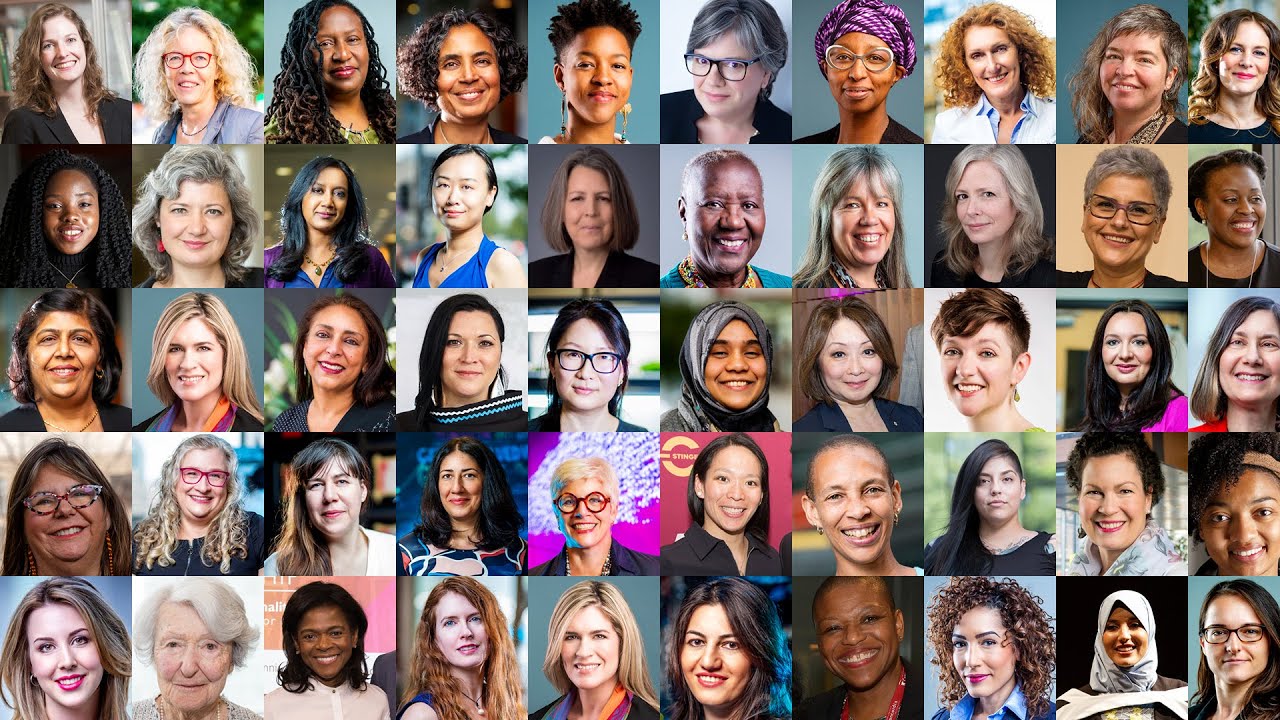When the United Nations declared 1975 as the International Women’s Year, it chose the song “I am woman hear me roar” as its anthem. In writing the song, Australian-American singer, Helen Reddy, claimed she drew inspiration from the many strong women in her family. Forty-six years later the world continues to celebrate one day in the year – March 8 as International Women’s Day.
To continue to honour the many professional women who have provided leadership and inspiration, FutureCIO invited three women leaders to share their views on what it takes to be leaders of the digital economy.
Mychelle Mollot, chief marketing officer (CMO) at Solace, says she could not imagine why in the year 2021, “we are still talking about how women are under-represented, undervalued and underpaid.”
Another CMO, Digital Transaction’s Noëlle Gahan recalls from her early days working for tech companies it was indeed a male-dominated environment but more importantly it was difficult to find women engineers. She acknowledges, however, that the field of emerging technologies is more welcoming of all genders – you just need to be interested in STEM.
For Namrata Jolly, general manager and head of APAC, Callsign, diversity in the workplace, particularly women in a leadership role not only brings a different perspective but helps reduce the risk of blind spots in our journey towards sustainable success.
Technology and digital transformation opening doors for women in leadership positions

Mychelle Mollot: For marketers like myself, the use of technology has given us a more concrete way of showing the board our contribution to the business and demonstrating the value in having women in leadership positions.
“We are now better able to prove a direct correlation between our efforts and the business's bottom line through various software tools and statistical data, unlike before when the results of marketing campaigns were less measurable.”
Mychelle Mollot
Technology also helped encourage women to go after more senior roles as they have greater clarity on how they are performing compared to their peers.
Namrata Jolly: Organizations are understanding slowly but surely that gender diversity in tech organizations and at the leadership level is not just a nice to have – but is a business imperative. At the same time, there is a long way to go and more work to be done.
While capable women exist in the areas of tech and digital, organizations need to play a role in supporting/grooming them for leadership, provide for work-life harmony and therefore greater flexibility in working and outcome-based performance management.
Noëlle Gahan: New emerging technologies have opened the door and there is a drive from all players to welcome not just women, but a diversity of people, to this new technology space.
It is not as much digital transformation per se that is accelerating the change to a more diverse environment, but the technologies themselves, which are having a big impact.
These technologies are new and are maturing at the same time as the digital native women who are getting involved. Education is less of a barrier, so women are active, engaged and leaders.
Is the pandemic diverting attention away from the importance of recognizing and promoting women leaders in technology and transformation?
Mychelle Mollot: It does appear so, given that most companies were focused on reinventing their business strategies to tide through unforeseen circumstances. It was inevitable that diversity and inclusivity initiatives took a backseat when the future of the business was up in the air.
However, companies need to recognize that diversity in the workplace is critical to sustainable growth, especially with an increasingly competitive business landscape. Traits that are often deemed traditionally feminine, such as empathy and sensitivity, not only help to build thoughtful leaders but can also have great value in the marketing sphere as it allows one to be more attuned to the needs of their customers.
Noëlle Gahan: While it is well acknowledged that women have been most affected in the workspace overall by the pandemic, I believe that women in the emerging technology space have been less impacted and that, in itself, is a recognition that this industry is less reliant on old-school gender-based stereotypes, but more focused on skills and knowledge. This is a new diverse industry, not just in gender, but in all aspects.

Namrata Jolly: The pandemic has shone a light on the support that women need, to be able to balance or harmonize work and activities at home. Women entrepreneurs also see the hesitation in investors investing in their company propositions.
"If a promotion is based on hours spent at work and productivity standards, we may lose the plot – what is needed is to base promotions on outcomes. We will then always promote the right people, no matter where they are."
Namrata Jolly
What qualities stand out when it comes to women technology leaders?
Mychelle Mollot: The best leaders in technology all have a contagious passion for what they do and are deeply empathetic.
Namrata Jolly: Women technology leaders have demonstrated resilience & perseverance. They help create empowered workplaces irrespective of gender. They are assertive without having to be rude or unkind. They have a very positive outlook and know how to ignore bad advice, and dare to make unpopular decisions.
What qualifications are needed to set one’s path towards a leadership role?
Mychelle Mollot: Courage. Integrity and Confidence.
- Courage. Don't be afraid to ask for, or say yes to, an assignment that you have no experience with. Trust that your intelligence and experience will help you learn quickly.
- Integrity. Integrity is the basis of trust, which should underpin any healthy relationship with your team. No one succeeds alone in an organisation; having integrity and trust will help to build meaningful connections necessary to get things done well and efficiently.
- Confidence. Believe in yourself. With confidence, you can overcome any limitations that might hinder your path towards a leadership role. Confidence is gained from experience - through countless practice, execution, learnings, and accomplishments.
Namrata Jolly: Expertise. Communication. Management skills. Be a good listener.
- Ensure you have good subject matter expertise in the area you would like to lead,
- Being a good communicator with your team, your peers and your bosses is key,
- Good stakeholder management – whether within the company or when dealing with external customers, its key to know what creates value for your stakeholders and how you can help deliver that,
- Be a good listener and ensure you always give credit to the teams who help you deliver.
What is that one leadership lesson you’ve learned in your career?
Mychelle Mollot: I would say that the biggest lesson I’ve learnt is that we have to be flexible as everyone needs to be motivated and coached differently.
Namrata Jolly: You get the very best out of your teams when you empower them and they know you have their back. The reward of doing this is not just the results that your team demonstrates, but it’s also the wonderful relationships you form for life.

Noëlle Gahan: It’s not as much about a lesson, but more about behaviour. I have always seen leadership as creating the right environment for every person in my team to succeed, and that is a different environment for each person.
"As a team leader, I want a diverse and wide variety of employee types, extroverts, introverts, and everyone in between, as that is how we get the best results, yet each employee also requires a different environment to succeed and excel – my role as a leader is to create the best “personal” environment for each person to succeed. I believe that this is what leaders should excel at."
Noëlle Gahan
What advice would you give to the next generation of female leaders?
Mychelle Mollot: Be brazen and go after what you want! Opportunities will not come to you simply because you deserve them. Know your worth and be persistent in asking for what you want and deserve. Be a role model and call out unacceptable behaviour when you see it - we have to hold people accountable for their actions if we want to eliminate any kind of workplace discrimination and build a healthy, inclusive work culture.
Namrata Jolly: Please always be true to yourself. Your playing small does not serve the world, so ALWAYS Play BIG and with Conviction. Finally, if someone tells you that there is something you cannot DO but it's something you want to, make sure you do it – not for them but YOU
Noëlle Gahan: I believe that the next generation of female leaders has it a bit easier; that is not to say that there still are not challenges. Do we still need to be twice as good as men to get to the same position?
Maybe not exactly twice now, but we still need to shine, and our focus is what matters, what will make a difference: focus on where you want to go, how you will solve problems, what impact you will make… and not on the barriers. There are still barriers, but I believe that they are easier to climb over.





